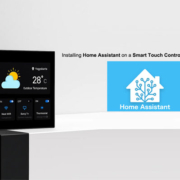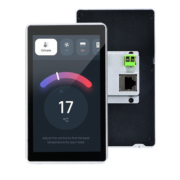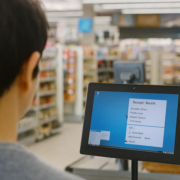Smart Home Control Panel B2B Sales: Opportunities, Strategies, and Best Practices
The market for smart home control panels is rapidly growing, as businesses and residential complexes increasingly seek ways to streamline home automation, enhance security, and improve energy efficiency. For manufacturers and suppliers in the B2B (Business-to-Business) space, the demand for smart home control panels presents a significant opportunity for growth. However, success in this market requires more than just offering a high-quality product. B2B sales in the smart home sector require strategic approaches, customer education, and strong relationship-building.
In this article, we’ll explore how businesses can effectively approach smart home control panel B2B sales, identify key opportunities, and implement the best practices to succeed in this evolving industry.
Why the Smart Home Control Panel Market is Booming in B2B
The smart home industry is expanding rapidly, and businesses are increasingly recognizing the need for centralized control solutions for their customers, employees, and tenants. Here are some key drivers behind the market’s growth:
-
Rising Demand for Home Automation
As smart homes become more common, control panels that manage devices like lights, thermostats, security cameras, and door locks are in high demand. Businesses offering smart home solutions to property developers, real estate agents, and construction companies need reliable, user-friendly control panels. -
Energy Efficiency and Cost Savings
Businesses in sectors such as hospitality, office management, and healthcare are looking for solutions to help manage energy consumption, optimize temperature control, and reduce operational costs. Smart home control panels offer the ability to monitor and adjust settings in real-time, improving overall energy efficiency. -
Security and Monitoring
Many companies, especially those in industries like real estate, hospitality, and healthcare, need centralized solutions for security and monitoring. Smart home control panels that integrate security systems, surveillance cameras, and access control devices are increasingly important for B2B buyers. -
Improved Comfort and Convenience for Employees and Tenants
Businesses in sectors such as property management, healthcare, and education are investing in smart home solutions to enhance the comfort and convenience of their tenants, residents, or employees. Smart control panels can manage lighting, temperature, and even entertainment systems from a single interface. -
The Rise of IoT (Internet of Things)
With the growth of IoT, more devices are becoming interconnected. B2B sales of smart home control panels tap into this growing ecosystem by offering seamless management of all connected devices through a centralized platform.
B2B Sales Opportunities for Smart Home Control Panels
-
Property Developers and Real Estate Companies
-
Target Market: Developers building residential complexes, smart homes, or commercial properties.
-
Opportunity: Developers and builders are increasingly integrating smart home technology into their new properties to offer value-added features to buyers or tenants. Smart home control panels can be sold as part of a bundled solution to manage everything from lighting to security.
-
Approach: Highlight the value of having a unified, centralized system that makes it easier for residents to control their environment and enhances property value. Provide custom branding options for these control panels to match the developer’s specifications.
-
-
Hospitality and Hotels
-
Target Market: Hotel chains, resorts, and vacation properties.
-
Opportunity: Hotels are increasingly adopting smart technologies to improve guest experiences, lower energy consumption, and streamline operations. Offering smart home control panels for guest rooms can provide easy control of lighting, temperature, entertainment, and room service.
-
Approach: Showcase the potential for operational savings, guest satisfaction, and the ability to manage energy consumption more efficiently across a hotel’s entire property. Additionally, focus on the scalability and ease of integration into existing systems.
-
-
Healthcare Facilities
-
Target Market: Hospitals, nursing homes, assisted living facilities, and medical centers.
-
Opportunity: Healthcare providers are turning to smart home control panels to enhance patient comfort, automate temperature and lighting controls, and improve security in medical environments.
-
Approach: Position smart home control panels as a way to improve patient outcomes, enhance safety, and simplify facility management. Emphasize features like automated door locking, emergency alert integration, and ease of use for staff.
-
-
Corporate Offices
-
Target Market: Office buildings, co-working spaces, and corporate headquarters.
-
Opportunity: Many companies are adopting smart office solutions for improved energy management, security, and employee productivity. Smart home control panels can integrate lighting, climate control, security systems, and more, all within a unified platform.
-
Approach: Focus on reducing operational costs and improving efficiency with a smart control system that centralizes office management. Offer customizable options for meeting rooms, conference areas, and common spaces.
-
-
Educational Institutions
-
Target Market: Universities, schools, and research facilities.
-
Opportunity: Educational institutions are integrating smart technologies to enhance campus operations and student experiences. Smart home control panels can manage lighting, HVAC, security, and campus-wide alerts.
-
Approach: Highlight the potential for enhanced safety, energy savings, and improved environmental control within classrooms, dormitories, and office spaces.
-
-
Key Strategies for Selling Smart Home Control Panels in B2B
-
Educate Your Prospects
Smart home technology can be overwhelming for some businesses, especially if they’re not familiar with how it works. Offering detailed product demos, educational materials, and case studies can help potential clients understand the value of smart home control panels. Provide webinars, white papers, and expert consultations to build trust and offer guidance. -
Focus on Customization
Many businesses have unique needs depending on their industry. Offering customizable smart home control panels that can integrate with existing systems (security, HVAC, energy management, etc.) will help differentiate your product. Tailor your pitch to show how the control panels can be adapted to meet specific operational or environmental needs. -
Highlight ROI and Cost Savings
For B2B buyers, the bottom line is critical. Demonstrate how smart home control panels can reduce energy costs, improve operational efficiency, and increase asset value. Provide case studies or examples where businesses have seen significant savings from using smart home control panels. -
Leverage Strategic Partnerships
Partner with companies that provide complementary services, such as IoT device manufacturers, property management firms, or facility management services. These partnerships can help you extend your reach to a wider audience and create bundled solutions that appeal to businesses looking for turnkey automation systems. -
Offer Support and Training
Provide ongoing customer support and training for businesses adopting smart home technology. Since many B2B buyers may be new to home automation, offering training resources, installation assistance, and dedicated customer service will help ensure a smooth experience and build long-term relationships. -
Emphasize Security and Scalability
For many businesses, security and scalability are major considerations. Highlight how your smart home control panels offer robust security features like encrypted communication and support for large-scale installations. Emphasize the ability to scale the system as the business grows, whether they need to add new buildings, devices, or locations.
Best Practices for Smart Home Control Panel B2B Sales
-
- Understand the Industry: Tailor your pitch to each industry’s specific needs and pain points. A developer will have different requirements than a hotel chain or healthcare facility.
- Offer Scalable Solutions: Businesses want products that can grow with their needs. Show how your smart home control panels can be easily scaled to accommodate future upgrades.
- Provide Trial Installations: Offering a trial period or demonstration installation helps businesses see the product in action and experience its benefits firsthand.
- Offer Financing Options: Large-scale installations of smart control panels can be expensive. Providing flexible payment plans or leasing options may make your product more attractive to businesses.










